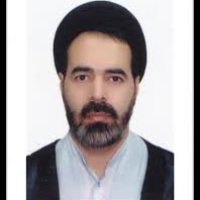Developing a Political Education Curriculum Based on Imam Ali (AS)'s Teachings in Nahj al-Balagha: A Meta-Synthesis Using Erwin's Model
The political education of students is of special importance due to its effects on human identity and future civil lifestyles. In the meantime, paying attention to the educational foundations of Imam Ali (AS) in Nahj al-Balaghah, due to his political growth, is emphasized by Muslim and non-Muslim world thinkers. Therefore, the aim of the current research is to explain the characteristics of in Nahj al-Balaghah.The current research is qualitative and its method is based on the meta-synthesis of Erwin et al., (2011). The research material consists of 68 articles and graduate theses about Imam Ali (AS)'s political education in Nahj al-Balaghah, which were presented during 2001-2020. The research sample includes 24 research that were purposefully collected and selected based on thematic data monitoring. he research data was gathered through a qualitative analysis of the studied documents. Based on the data analysis, the components of political education from the perspective of Imam Ali (AS) in Nahj al-Balaghah were categorized into 6 dimensions and 31 factors.These dimensions include the characteristics of goals, principles, and foundations of political education, teaching-learning methods, behavioral dimensions (trainer and learner), evaluation, and environment. Curriculum planners can design and develop a better political education curriculum by considering these features for the elements of political education curriculum and the factors affecting it.
-
Analysis of the Special Guidance of the Imam Based on the Verse of Trial. Baqara 2:124) from the Perspective of Ayatollah Javadi Amoli
Behnoush Mohtadi, *, Marzieh Eskandarjoo
Journal of Imamiyyah Studies, -
Analysis of the Characteristics of the Tyrants in the Era of Prophet Moses (A.S.)
Seyyed Ziaoddin Olyanasab, Fatemeh Shah Mohammadi *
Biannual Journal of Research in the Interpretation of Quran,



